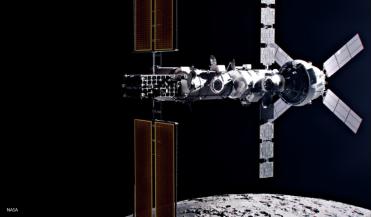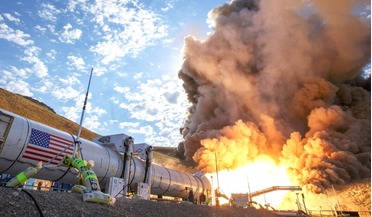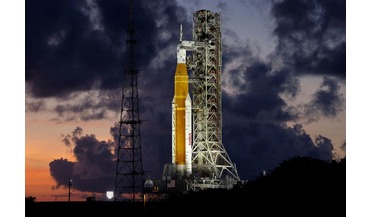 April 2025
Racing to the Moon
April 2025
Racing to the Moon
... to achieve major Mars expeditions - or even to beat China in a return to the Moon. If China and the West are indeed racing to the Moon, despite every advantage in technology and experience, it is a race that the West is not well-placed to win. About...
 01 October 2019
Returning People to the Moon after Apollo
01 October 2019
Returning People to the Moon after Apollo
...-style power stance”. The second half of the book gets down to some analysis of why it is “taking so long to return to the Moon” and the question of “when will the United States go back?”. In answer to the first question, the author concludes that...
 November 2016
Moon or Mars - NASA’s next logical step?
November 2016
Moon or Mars - NASA’s next logical step?
... prestige and inspires citizens, both old and young, to pursue excellence. So what really is the next logical step for NASA? Is it to return to the Moon, or press forward to Mars? With shrinking space budgets, a lack of political will, and shortages...
 January 2021
Evolution of volatiles on the Moon
January 2021
Evolution of volatiles on the Moon
... pristine condition since their return from the Moon in the 1970s. The laboratories are today actively planning for the arrival of the precious lunar polar samples collected as part of the Artemis programme. One of the robotic precursor missions that...
 29 August 2022
Lift-off draws close for NASA’s spectacular lunar return mission
29 August 2022
Lift-off draws close for NASA’s spectacular lunar return mission
... a giant new rocket for nearly two decades. In 2004, the agency announced plans for a massive launcher called the Ares V as part of its Constellation programme to return to the Moon by 2020. When that programme was ultimately cancelled by President...
 October 2021
Russia and China – a new space axis
October 2021
Russia and China – a new space axis
... 2021 of an agreement to build a lunar base. This was most likely prompted by the planned American return to the Moon, the Gateway project and then the Artemis Accords. Unlike the International Space Station (ISS), which was designed and operated...